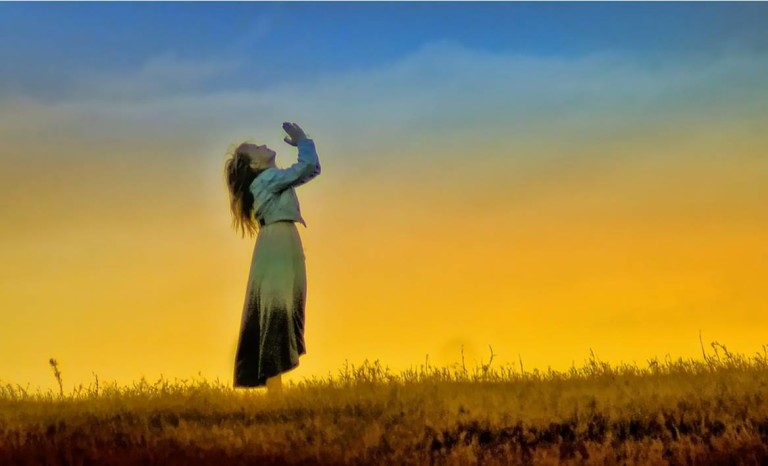This is the invitation of God through the priest who, before communion, reminds us that we are invited to the joyful participation of the Eucharistic table. When this invitation comes to us, we recall the parable in which Jesus describes the heavenly feast wherein the heavenly King gave a wedding feast for his Son and invited all people for the feast, including us. “Behold, I have prepared my banquet, my calves and fattened cattle are killed, and everything is ready; come to the feast” (Mt 22:4). Therefore, in the Eucharistic table we are the invited guests; we come with the invitation from the Heavenly King in confidence, love and faith because he loves us and wants to be with us even though we are not worthy.
God invites us not just at the moment of communion but from the beginning of the Mass, when the priest welcomes and invites all faithful people by saying: “In the Name of the Father and of the Son and of the Holy Spirit.” At this moment the Wedding Feast of the Lamb begins and we are called to come back to the source of life, the fountain of grace, which is the love of the Holy Trinity now revealed in Christ Himself through his suffering, death and resurrection.
Thus, the celebration of the Mass is the memorial of what we are called to do as our Lord Jesus Christ has commended us in his Last Supper before entering into his suffering: “Then he took the bread, said the blessing, broke it, and gave it to them, saying, this is my body, which will be given for you; do this in memory of me” (Luke 22:19). The Mass itself is the sacrifice of the Son of God. Jesus sacrifices himself as an offering to the Father for our salvation. The celebration of the Mass is also “the whole public worship performed by the Mystical Body of Jesus Christ, that is, by the Head and his members and as an action of Christ the Priest and His Body which is the Church.” This is offered to the Father who “so loved the world that he gave his only Son, so that everyone who believes in him might not perish but might have eternal life” (John 3:16). The Mass is also the work of the Holy Spirit, the third Person in the Holy Trinity, who is in union with Christ Jesus, inspiring Jesus to offer Himself to the Father for the sake of mankind: “how much more will the blood of Christ, who through the eternal spirit offered himself unblemished to God, cleanse our consciences from dead works to worship the living God” (Heb 9:14).
Therefore, whenever we celebrate the Liturgy of the Eucharist, we are celebrating the love and life of the Holy Trinity; moreover we now are invited to communion with God the Father, God the Son and God the Holy Spirit through the Passover Feast of God the Son. In the Eucharist we are sharing in the Divinity and in everlasting love with God.
John, the Beloved, stresses this love, the love of the Father in his plan of salvation for humankind: “In this is love: not that we have loved God, but that he loved us and sent his Son as expiation for our sins (1Jn 4:10). Therefore, when we come for the Eucharistic Celebration we must have a great faith and full confidence in which we recall to mind that God is the one who comes to us first and also speaks to us first, and that it is right for us to worship him.
We are called to open our hearts to receive the love of God the Father by receiving the Eucharist- the gift the Father gives to us. In the mystery of the Eucharist, Jesus, the Son of God and God himself, is the greatest gift which God has given to us; there is no other greater gift than this. He became the living Bread for us willingly and submissively. “ I am the living bread that came down from heaven; whoever eats this bread will live forever; and the bread that I will give is my flesh for the life of the world” (John 6:51). Jesus offers himself for the reconciliation of sinful mankind with the Father through his sacrifice on the Cross. An act of love of Christ is done for two purposes: first to glorify God and secondly to take us to the Father.
In the liturgy of the Eucharist, Jesus invites us come to share his life and with him we glorify God the Father as he is doing. So that, through this mystery the world may recognize that “through him, with him, in him, in the unity of the Holy Spirit, all glory and honor is yours, almighty Father, for ever and ever”. The liturgy of the Eucharist – the invitation of love and communion with God – is always there for us, everyone of us.
JB.Trinh






